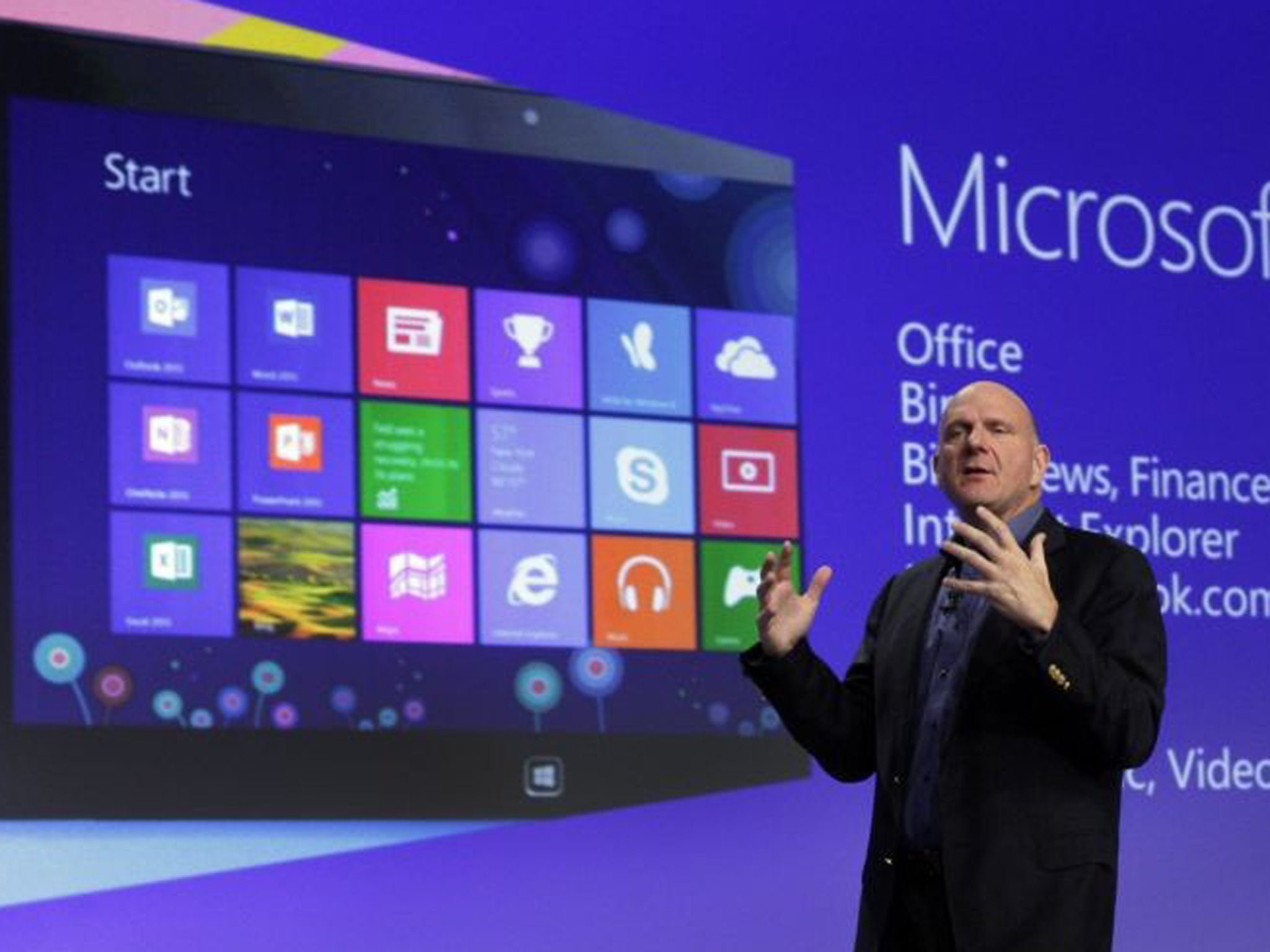Rhodri Marsden: Windows 8 U-turn based on nagging fear users will desert Microsoft for Apple
Millions have downloaded utilities to bring back some traditional lements of Windows

There's been a picture meme doing the rounds on the internet for a few months now, which attempts to formulate a vague pattern around the success or otherwise of Microsoft's operating systems. Windows 3.1 was deemed good, Windows 95 bad. Windows 98 was good, Windows ME wasn't.
Windows XP great, Windows Vista not so. And with Windows 7 receiving critical praise, Windows 8 was, for the overly superstitious, always going to face an uphill struggle when it was launched in October last year.
Microsoft have bullishly announced that over 100m licenses of Windows 8 have been sold – but it's evident that sales are falling month-on-month in a way that sales of Windows 7 didn't. What's to blame? What's upsetting people so? After all, Windows 8's "Metro" design principles, ported across from Windows Phones, look rather beautiful. Sadly, however, "pretty" and "functional" are not the same thing; many would sacrifice the new, tasteful typography to have their Start Menu back, or for the Microsoft "ribbon" to not take up so much of the screen, or to work out how to find the Shut Down command.
Many of these complaints, it's true, can be put down to a fear of change from the "we preferred it the way it was" brigade; the same ones who whine whenever Facebook makes spontaneous layout changes. But regardless of whether Windows 8 works more efficiently under the bonnet, the user interface is, for most people, the only thing that matters. They're unsettled by drastic alterations, and millions have downloaded utilities such as Pokki, Start8 and Classic Shell to bring back some traditional elements of Windows.
Thanks to its huge success in the 1990s, Windows is globally dominant; well over a billion people are familiar with the Start Menu and its cousins. And while there's nothing wrong with bold change per se, relearning how to use a computer can be daunting on a personal level and expensive on a corporate one. The tweaks now being made by Microsoft to placate irate consumers seem to be predicated upon a nagging fear that if people feel like they have to learn something new, well, they might just buy a Mac.
Join our commenting forum
Join thought-provoking conversations, follow other Independent readers and see their replies
Comments
Bookmark popover
Removed from bookmarks